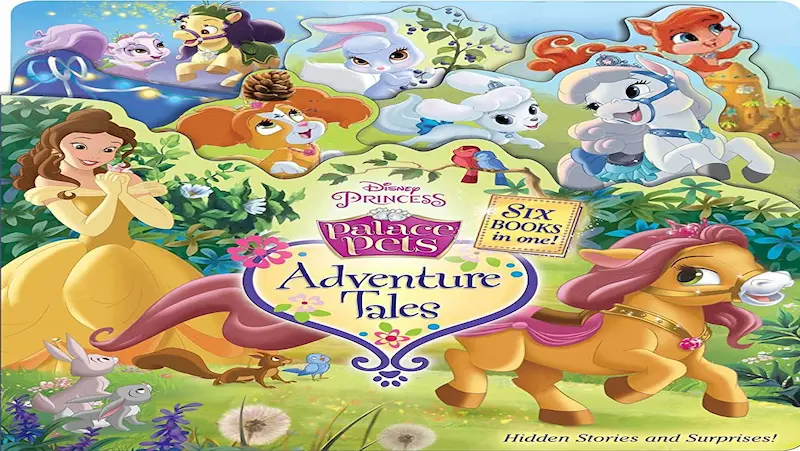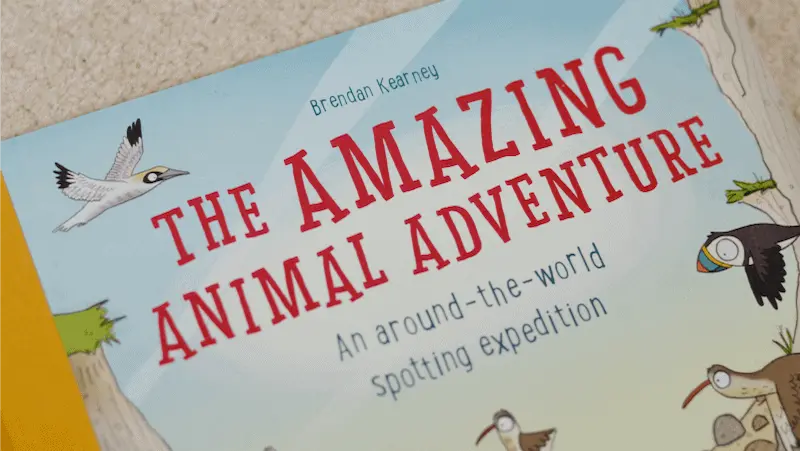Welcome to our blog, where we bring you delightful and engaging short stories for kids! We believe that reading is a magical gateway to imagination, learning, and personal growth, especially for young children.
That’s why we have chosen to focus on sharing these wonderful stories that captivate young minds and leave them wanting more.
Reading plays a vital role in a child’s development. It enhances their language skills, expands their vocabulary, and sparks their creativity. Additionally, reading helps children develop empathy, critical thinking, and problem-solving abilities. It lays the foundation for a lifelong love of learning and opens up a world of endless possibilities.

Understanding the importance of reading for children, we have created this blog as a valuable resource for parents and educators. We want to make it easy for them to access high-quality short stories that are not only entertaining but also educational.
Our stories are carefully selected to engage young readers, capture their imagination, and instill important values and life lessons.
Whether you’re a parent looking for bedtime stories, a teacher searching for materials to engage your students, or simply someone who wants to share the joy of reading with children, our blog is here to assist you.
We aim to provide a wide range of stories that cater to different age groups, interests, and themes, ensuring that there is something for every child.
Through our blog, we hope to foster a love of reading in young minds, cultivate their imaginations, and encourage them to explore the world of literature. We believe that every child deserves the opportunity to experience the magic of storytelling, and we are committed to making that happen through our collection of short stories.
Join us on this exciting journey as we embark on an adventure-filled world of imagination, inspiration, and discovery. Let’s make reading a cherished part of every child’s life, one short story at a time.
Table of contents
The Benefits of Short Stories for Kids
A lifetime of study and discovery can be built on the fundamental talent of reading. Young readers have a great opportunity with short stories to interact with fascinating narratives while also developing important skills like reading comprehension, vocabulary growth, and critical thinking. Picture books with colorful illustrations complement stories for kids, enhancing their understanding and sparking their creativity.
In this blog article, we’ll examine the benefits of short stories for young readers and consider how they can advance their general intellectual development. We will also look at pertinent studies and research that back up these statements.

Enhancing Reading Comprehension
Young readers benefit from the clear and concentrated narratives found in short stories since it is simpler for them to follow and comprehend the story’s plot. These narratives, which have a distinct beginning, middle, and finish, aid readers in improving their comprehension skills by pointing out tale components such as characters, settings, conflicts, and resolutions.
Also, Unlock your child’s creativity and logical thinking with our dynamic coding classes for kids, led by experienced instructors.
Short stories’ concision makes it easier for young readers to absorb the narrative and understand the subtleties of the storyline, which improves their reading comprehension skills.
Vocabulary Development
It’s crucial to be exposed to a wide variety of words if you want to develop a broad vocabulary. Young readers can learn a variety of terms and phrases in a condensed context through short stories. Young readers can discern the meanings of new words and broaden their vocabulary by using context clues and textual cues.
Readers are exposed to a wide range of terminology through the diverse themes and genres explored in short tales, which helps them communicate more clearly in both spoken and written language.
Critical Thinking Skills
Readers of short stories are frequently given difficult circumstances, moral quandaries, and unexpected turns. Young readers are encouraged to think critically, examine the motives of characters, and weigh the effects of various decisions through engaging with these storylines.
Short stories encourage readers to use their imagination and creativity by encouraging them to examine different viewpoints and form their own interpretations. Young readers develop their critical thinking abilities by investigating numerous outcomes and implications.
Exploring the art hub for kids, you’ll find a colorful array of paintings, sculptures, and crafts created by the young, budding artists themselves.
These abilities are essential for problem-solving and decision-making in a variety of spheres of life.
Supporting Research
The advantages of short stories for young readers are supported by numerous studies. Children’s reading comprehension abilities benefited from regular exposure to short stories, according to research by the National Literacy Trust in the UK.
Children who read short stories showed a superior comprehension of story structure and character development than those who exclusively read larger texts, according to the study.
In addition, research that appeared in the Journal of Literacy Research looked at how reading short stories affected primary school students’ vocabulary development. The study’s findings revealed that children’s word knowledge and comprehension of word usage in context were greatly improved by exposure to a variety of vocabulary in short stories.
Types of Short Stories for Kids
Short stories have always held a special place in the literary landscape for children. These compact narratives captivate young readers, transporting them to magical worlds, teaching valuable life lessons, and sparking their imagination.
In this blog post, we will embark on a delightful journey through the various types of short stories available for children. From timeless classics to contemporary tales, let us explore the wide array of options that cater to the young minds of today.

Classic Tales
Classic tales form the foundation of children’s literature, enchanting generations with their timeless appeal. These stories have stood the test of time, leaving an indelible mark on the literary canon.
They often feature enduring characters, moral lessons, and captivating storylines that resonate across ages. Examples of classic short stories include “The Ugly Duckling” by Hans Christian Andersen, “Little Red Riding Hood” by the Brothers Grimm, and “The Emperor’s New Clothes” by Andersen, among others.
The tradition of sharing bedtime stories for kids creates cherished memories and helps cultivate a lifelong love for reading.
Fairy Tales and Folklore
Fairy tales and folklore hold a special allure for children, filled with magical creatures, mystical settings, and elements of fantasy. These stories often teach important values and life lessons while entertaining young readers.
Fairy tales like “Cinderella,” “Snow White and the Seven Dwarfs,” and “Beauty and the Beast” have become staples in children’s literature, enchanting them with their enchanting narratives and hopeful messages.
Contemporary Stories
In recent times, a new wave of children’s authors has emerged, crafting engaging and relatable stories that resonate with the modern generation. These contemporary short stories reflect the experiences and challenges faced by today’s children, making them highly relatable and relevant.
Authors like Roald Dahl, Dr. Seuss, and Jacqueline Wilson have created captivating contemporary stories that address themes such as friendship, self-discovery, and overcoming obstacles.
Picture Books
Picture books combine the magic of storytelling with captivating illustrations, making them an ideal choice for young readers. These stories often have simple yet powerful narratives accompanied by vivid and colorful artwork.
Picture books play a crucial role in introducing children to the world of reading, as the illustrations help them visualize the story and engage their imagination. Popular examples include “Where the Wild Things Are” by Maurice Sendak and “The Very Hungry Caterpillar” by Eric Carle
Animal Stories
Children have an innate fascination with animals, and animal stories provide an excellent way to engage their interest in reading. These stories feature animal protagonists who embark on exciting adventures, teaching valuable life lessons along the way.
Animal stories like “Charlotte’s Web” by E.B. White and “The Jungle Book” by Rudyard Kipling introduce children to themes of friendship, loyalty, and the importance of nature.
Moral and Fable-Based Stories
Moral stories and fables have been used for centuries to impart important life lessons to children. These stories often feature anthropomorphic animals or mythical creatures, with each character representing a certain moral or virtue.
Also, explore about computer games for kids that are designed to be both fun and safe, with age-appropriate content.
Aesop’s Fables, such as “The Tortoise and the Hare” and “The Boy Who Cried Wolf,” are timeless examples of this genre, teaching children the importance of honesty, patience, and integrity.
Choosing the Right Short Stories for Your Child
One of the best gifts we can give kids is the ability to read. Children might develop a love of reading through short stories because they offer digestible storylines that hold their attention. Finding the ideal short stories for your child might be a difficult challenge, though.
We will provide advice for parents and educators on how to choose the ideal short stories that meet their child’s reading ability and interests in this article. We’ll also look at some suggestions to help kids enjoy reading and find it interesting.

Reading Level Assessment
It’s critical to gauge your child’s reading ability before selecting any short stories for them. Think about the following elements:
a. Vocabulary and Language Complexity: Choosing stories that are in line with your child’s present vocabulary is a good idea. Avoid overwhelming them with sophisticated terms that can hinder their reading progress in favor of suitable sentence structure.
b. Reading fluency: Pick books that are just difficult enough for your youngster to grow without becoming frustrated. As their reading abilities advance, gradually increase the complexity.
c. Text Length: Short stories are, by nature, brief. However, take your child’s attention span into account. Shorter stories should be told at first, and as they get more comfortable, lengthier ones.
Interest-Based Storytelling
Stories that appeal to children’s interests are more likely to hold their attention. When choosing short stories for your child, take into account the following advice:
a. Request Their Opinion: Participate in decision-making with your child. To guarantee that their interest in reading remains high, find out about their preferred genres, subjects, or people.
b. Varied Genres: Introduce your youngster to a variety of genres, including fantasy, adventure, mystery, and historical fiction. They can explore other tales in this way, broadening their reading experiences.
Explore Coding for kids introduces them to the world of technology and empowers them to create their own digital projects
c. Real-Life Connections: Seek out narratives that feature relevant individuals or circumstances from everyday life. Children are better able to relate to the content and gain a deeper grasp of their surroundings as a result.
Making Reading Fun and Engaging
It’s critical to make reading fun if you want to cultivate a lifetime love of reading. Here are a few concepts:
a. Read aloud: Read aloud to your youngster in turns. This encourages engagement and enhances understanding. Additionally, it gives you the chance to demonstrate expressive reading.
b. Create a Reading Routine: Establish a regular reading time and place where your child feels at ease and engaged. a. Establish a Reading Routine. Reading becomes a normal part of their daily routine when consistency is maintained.
c. Encourage Discussion: Encourage your child to express their thoughts, feelings, and views about the characters, storyline, and themes after reading a story. This fosters the growth of critical thinking abilities and a deeper comprehension of the text.
d. Explore Supplementary Activities: Enhance the reading experience by incorporating related activities, such as crafts, dramatic play, or creating artwork inspired by the story & programs for kids. This brings the story to life and deepens their connection with the narrative.
Our Collection of Short Stories for Kids
Children’s literature is a gateway to imagination, where young minds embark on incredible adventures, encounter fascinating characters, and learn valuable lessons. In this blog post, we proudly present our collection of short stories for kids, carefully curated to entertain, inspire, and nurture young readers’ creativity.
Organized by category and reading level, each story offers a unique experience. Join us on this literary journey filled with excitement, wonder, and life lessons!
Adventure Tales

“The Secret Treasure”
In this thrilling adventure, a group of young explorers discovers an ancient map leading to a hidden treasure. As they navigate through mysterious forests and overcome obstacles, they learn the value of teamwork, perseverance, and friendship.
Also, Speech therapy for kids can greatly improve their ability to communicate clearly and effectively
“The Magical Key”
A curious girl stumbles upon a magical key that unlocks a door to an enchanted world. As she embarks on a quest to rescue a captured unicorn, she learns about bravery, empathy, and the importance of cherishing the extraordinary.
Fantasy and Imagination

“The Dancing Stars”
Follow a young dreamer’s journey as she discovers that every star in the night sky has a unique story to tell. Through her enchanting encounters with the stars, she learns about the power of dreams, the beauty of individuality, and the limitless possibilities of imagination.
Parents often encourage their children to develop good habits for kids, such as washing their hands before meals.
“The Mysterious Potion”
When a mischievous young wizard accidentally brews a potion that causes hilarious transformations, chaos ensues in the magical kingdom. This whimsical tale explores the themes of responsibility, problem-solving, and embracing our imperfections.
Animal Adventures

“The Lost Penguin”
Join a courageous penguin on a heartwarming quest to find its way back home. Along the journey, the penguin encounters new friends, faces challenges, and discovers the true meaning of family and belonging.
“The Wise Owl’s Wisdom”
In the mystical forest, a wise old owl shares its wisdom with a young squirrel seeking guidance. Through their conversations, the squirrel learns valuable life lessons about patience, perseverance, and the importance of listening to one’s instincts.
Moral Stories

“The Kindness Rock”
In a small village, a humble child discovers a magical rock that spreads kindness to anyone who touches it. This heart-touching story encourages empathy, compassion, and the joy of giving, highlighting the power of even the smallest acts of kindness.
“The Rainbow Bridge”
A lonely girl finds solace in a magical rainbow bridge, where she learns about the significance of acceptance, diversity, and embracing the unique qualities that make us who we are. This tale promotes inclusivity, respect, and the beauty of differences.
Conclusion
In conclusion, this article has highlighted the importance of nurturing children’s imagination and creativity through the power of storytelling. We have discussed the significant impact that engaging and relatable short stories can have on their development, fostering a love for reading and enhancing their cognitive and emotional skills.
By exploring a collection of short stories specifically crafted for kids, you open up a world of wonder and adventure for young minds. These stories transport children to magical realms, introduce them to fascinating characters, and teach valuable life lessons in an entertaining and accessible manner.
Also, do check out the Robotics for kids classes teach young minds how to build and program their own robots
If you’re looking to provide your children with captivating stories that spark their imagination, we invite you to explore our collection of short stories for kids. From whimsical tales of talking animals to thrilling adventures set in faraway lands, our stories are designed to ignite a lifelong love for reading and learning.
To stay updated with new releases, behind-the-scenes content, and exclusive offers, we encourage you to subscribe to our blog. By subscribing, you’ll receive regular updates straight to your inbox, ensuring that you never miss a new story or exciting announcement.
You can also follow us on social media for even more interactive storytelling experiences. Connect with us on Facebook, Twitter, and Instagram to join a vibrant community of parents, teachers, and fellow story enthusiasts. Share your thoughts, engage in discussions, and discover a wealth of resources and recommendations to enrich your child’s reading journey.
Together, let’s embark on a magical adventure through the pages of captivating short stories and create cherished memories that will inspire and shape young minds for years to come. Subscribe today and join us in celebrating the joy of storytelling!
To get your hands on more such educational and free resources on coding, robotics, game development, etc., do check out the BrightCHAMPS Page now! Learn about coding for kids too.
Frequently Asked Questions
A1: Short stories enhance literacy skills, foster imagination, and promote critical thinking in children.
A2: Short stories encourage creative thinking, spark imagination, and allow children to explore new worlds and ideas.
A3: Common themes in children’s short stories include friendship, bravery, kindness, adventure, and problem-solving.
A4: Look for age-appropriate short story collections at libraries, bookstores, or online platforms with curated content for children.
A5: Reading short stories to your child regularly, such as a few times a week, can be beneficial for their language development and overall enjoyment.


 We are an army of educators and passionate learners from BrightChamps family, committed to providing free learning resources to kids, parents & students.
We are an army of educators and passionate learners from BrightChamps family, committed to providing free learning resources to kids, parents & students.







